
Seven companies offer a safety net against market volatility and constant dividend payments for those looking for a stable source of income. High-yield dividend companies are particularly appealing in the uncertain, higher-for-longer economic environment. Their solid financial foundations enable them to pay out large and regular dividends.
Meanwhile, the first one leverages its strong market position and innovative product strategies to maintain profitability and steady dividends. The second one’s diverse product portfolio and efficiency improvements bolster its financial health, ensuring reliable shareholder returns. The third one’s brand loyalty and strategic store expansion drive consistent revenue, supporting its dividend payouts. The fourth one’s focus on secure first-lien loans enhances its portfolio quality, making it a stable dividend payer. The fifth one’s strategic investments in healthcare assets and operational efficiencies ensure sustainable growth and dividends.
Finally, the sixth one’s strong research pipeline and effective commercialization of key products underpin its financial strength and dividend reliability. The last one on the list, solid cash flow from telecommunications services and cost management, supports its high dividend yield.
British American Tobacco (BTI)
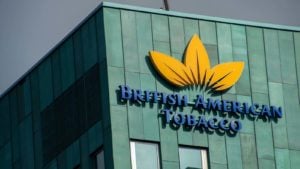
British American Tobacco (NYSE:BTI) leads in tobacco and nicotine products. Its stock offers a forward dividend of 9.41%. It added over 3 million consumers year-on-year, with 1.1 million new consumers in Q4 alone. This rapid growth in consumer numbers reflects the increasing adoption of British American Tobacco’s products and the effectiveness of its marketing and distribution strategies. The growth in new categories is particularly impressive, with Vuse and Velo driving volume-led solid revenue growth. Expanding the consumer base in these categories indicates a successful shift towards reduced-risk products.
Moreover, British American Tobacco has made progress in its U.S. combustibles business, with volume share up 40 basis points since January, driven by a 1.6% increase in the premium segment. Value share gains were also notable, up 0.2% since January, driven by a 0.6% increase in the premium share. Lucky Strike, a core brand, has become the fastest-growing cigarette brand in the U.S. market, reaching a 4% national volume share just three years after launch. Overall, British American Tobacco’s solid market lead and constant top-line growth make it a high mark on the high-yield dividend stocks list.
Procter & Gamble (PG)
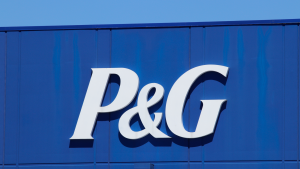
In the market of household products, personal care products, and hygiene products, Procter & Gamble (NYSE:PG) is the industry leader. Procter & Gamble’s stock has a dividend yield of 2.42% (forward). Procter & Gamble’s diverse portfolio showed varied performance across different segments. The beauty segment’s organic sales grew by 3%, with innovation-driven solid volume growth in personal care partially offset by declines in the super-premium SK-II brand. Despite an unfavorable product mix, Grooming Segment’s organic sales increased by 10%, driven by higher pricing in Latin America and Europe.
Further, the healthcare segment’s organic sales increased by 2%, supported by a premium product mix in oral care, though offset by volume declines in Asia Pacific and North America. The Fabric and Home Care Segment has recorded a 3% organic sales increase. Here, low single-digit growth in Fabric Care and high single-digit growth in Home Care is driven by pricing. Finally, with a 7% dividend increase, this year will be the 68th yearly increase and the 134th dividend payment year combined. In short, Procter & Gamble’s generous dividend payments and solid segment performance support its presence among the top high-yield dividend stocks.
Starbucks (SBUX)
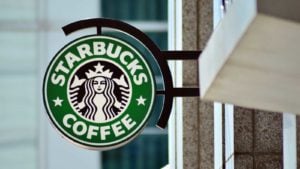
Starbucks (NASDAQ:SBUX) is a global coffeehouse chain and coffee retailer. The company’s stock yields a 3%dividend on a forward basis. Starbucks has a large and loyal customer base. Over 60% of Starbucks’ morning business in the U.S. comes from Starbucks Rewards members. This indicates a strong top-line from loyal customers who use the Starbucks app for Mobile Order & Pay (MOP). The company has a forward-looking product pipeline that is highly appealing and designed to seize market demand.
Additionally, Starbucks continues to demonstrate strong store development capabilities, with a healthy and robust network of stores that are performing well operationally. The company optimizes its store formats and expands its footprint to derive top-line growth. Starbucks may design and build over 3,000 new stores globally in 2024. This mark may reach 55,000 stores by 2030. This strategic expansion is supported by solid unit economics, average unit volumes (AUVs), and return on investments (ROIs). Overall, Starbucks is on the high-yield dividend stocks list due to high brand loyalty and efficient store operations while expanding its footprint.
Oaktree Specialty Lending (OCSL)

Oaktree Specialty Lending (NASDAQ:OCSL) facilitates specialized lending options. A forward dividend yield of 11.75% yield by Oaktree Specialty’s stock. More secure first-lien loans comprise a considerable portion of the company’s portfolio. As of September 2022, the percentage of first-time investments was 71%. As of Q2 2024, it is 81% of the total portfolio. Second-lien investments dropped from 16 percent to 5 percent at the same time. Therefore, first-lien loans are usually less risky than second-lien loans, this change improves the Oaktree Specialty portfolio’s overall credit quality.
Moreover, Oaktree Specialty demonstrated sharp investment activity. The company is originating $396 million of new investment commitments in Q2 2024. This follows $370 million in the prior quarter, indicating sustained momentum. The weighted average yield on new debt investments was 11.1%, reflecting attractive returns from new investments. Paydowns and exits brought in $323 million during Q2, demonstrating solid repayments. Over half of the portfolio has changed hands in the last two years. Simply put, Oaktree Specialty’s move to first-lien loans and deliberate investment activities assure its position as one of the best high-yield dividend stocks.
CVS Health (CVS)

In the areas of pharmacy services, retail pharmacy, health insurance, and healthcare innovation, CVS Health (NYSE:CVS) is a leader. The stock of CVS Health has a forward dividend yield of 4.68%. The strategic investments in healthcare delivery businesses like Oak Street Health and Signify Health have derived encouraging growth. For instance, Oak Street’s at-risk patients grew nearly 20% annually, reflecting CVS’s effective integration and expansion strategies in the healthcare delivery sector.
Certainly, CVS Health has been proactive in driving innovation, particularly in its pharmacy and consumer wellness segments. Initiatives like CVS CostVantage, aimed at providing transparent and cost-effective pharmacy models, have garnered positive market reception. In Q1 2024, CVS Health had a top-line of approximately $88 billion, marking a 4% increase over the previous year. This growth is significant given the scale of CVS’s operations, indicating robust market demand and effective operational management across its business segments. Overall, CVS Health’s strategic acquisitions, investments, and stable revenue streams make it a high mark on the high-yield dividend stocks list.
Pfizer (PFE)
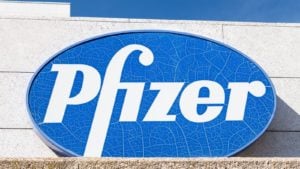
Pfizer (NYSE:PFE) leads in treatment areas such as oncology, immunology, and vaccines. Its stock is labeled with a 6.02% dividend yield (forward). The company’s commercial solid execution has contributed to the growth of core products outside COVID-related treatments. Products like Vyndaqel, Eliquis, and Abrysvo have shown robust annual growth, reflecting Pfizer’s effective marketing strategies and global market expansion efforts. This performance is supported by a refined allocation of resources and focused marketing efforts, particularly in high-potential therapeutic areas like respiratory and hematology.
Additionally, Pfizer’s operational edge and cost management initiatives have significantly improved adjusted gross margin, which increased by 5.3% to 79.6% in Q1 2024. This improvement was driven by a favorable sales mix and strong cost management across its manufacturing network. The ongoing cost realignment program may deliver at least $4 billion in net savings by the end of 2024. This is enhancing profitability and supporting future investments in growth initiatives. In short, Pfizer’s focus on advancing pipelines and constant bottom-line improvement reinforce its high status among high-yield dividend stocks.
Verizon (VZ)
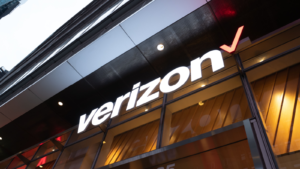
Verizon (NYSE:VZ) leads in wireless communications, internet, and entertainment services. The dividend on its stock is 6.41% on a forward basis. For Q1 2024, the company’s adjusted EBITDA was $12.1 billion, indicating a 1.4% yearly increase. Cost-cutting initiatives and more income are the causes of this expansion. Verizon’s free cash flow during Q1 2024 was $2.7 billion. Against Q1 2023’s $2.3 billion earned, there has been a 16% rise. Strong cash-generating capabilities are indicated by the development of free cash flow, which supports Verizon’s financial flexibility and expansion possibilities.
Further, the company’s performance in postpaid phone net adds sharply improved. There was a net loss of 68,000 net adds in Q1 2024 against a net loss of 127,000 in Q1 2023. This improvement, despite taking pricing actions, demonstrates Verizon’s strong value proposition and effective customer retention strategies. The growth in postpaid phone gross adds by more than 5% annually further underscores this strength. To conclude, Verizon’s strong cash flow generation and improvement in net assets led to its high-yield dividend stocks list.
As of this writing, Yiannis Zourmpanos held long positions in BTI, SBUX, OCSL, CVS, PFE and VZ. The opinions expressed in this article are those of the writer, subject to the InvestorPlace.com Publishing Guidelines.
On the date of publication, the responsible editor did not have (either directly or
indirectly) any positions in the securities mentioned in this article.




